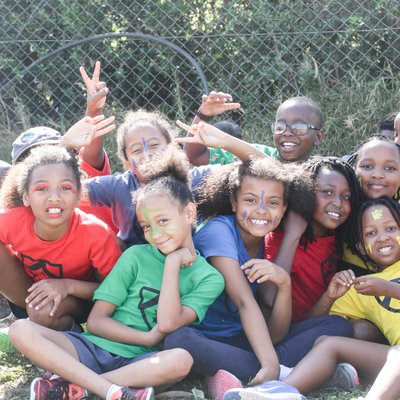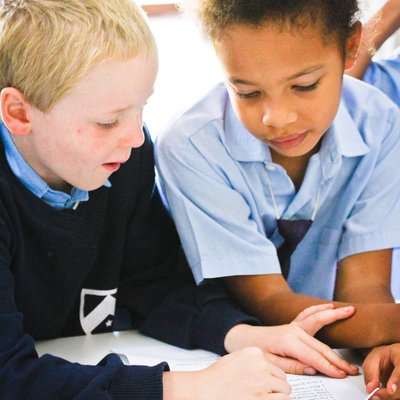Secondary Student, Sasha Pandit, shares her thoughts on Mental Health
26th October 2018
The Cultural Taboo on Mental Illness - World Mental Health Day 2018
Today, I’m going to talk about mental illness and the cultural taboo entangled in it. I’d like to ask each and everyone of you to now look around yourselves. You are surrounded by dozens upon dozens of individual minds who either blossom or scream in the silence.
The American Psychiatric Association defines mental illness as health conditions involving one or a combination of changes in thinking, emotion or behaviour. The key words in that definition would be “health condition”. Mental illness is just as serious as other more physical illnesses like diabetes or heart disease. Without mental stability, even the most physically stable person will feel their health deteriorate. So many people have disregarded mental disorders as just a made up phenomenon or a method of seeking attention. Mental illness is real! It is poisoning more and more of our population and we have nobody but ourselves to blame. Those suffering from mental disorders are not just making it up; they are not just attention seeking and most of all, they cannot ‘just get over it’.

Depression - one of the more common mental illnesses- is said to affect approximately 350 million people worldwide. What is the probability that 350 million people have schemed and decided to purposely suffer just to gain attention? It’s very, very low. In fact, depression is more than just sadness- which it is often wrongly paired synonymously with. Depression is a disorder that is affected by a lack or underproduction of the neuro-transmitter serotonin in the brain. Depressive people can’t just wake up one day and decide to stop producing the hormone that makes them happy in the same way that insomniacs can’t just decide to slow their production of melatonin or dopamine. Emotions are key in this situation. Love or attraction is dependant on oxytocin production and excitement is associated with rushes of adrenaline. None of this is controlled and this is the reason why ‘getting over it’ just isn’t all that simple. So many of us are insecure about who we are. There’s nothing wrong with us, we’re just brought up to believe that because we are grow up trying as hard as we can to conform to the incredibly harsh expectations of society. The very expectations that ultimately can’t even be defined because they’re all relative. We don’t realise that we’re fine the way we are because we’re born as unique individuals and that in itself makes us all perfect in our own different ways; but nobody truly believes that because we’re all hell bent on achieving societies definition of beauty- even if we end up hurting ourselves in the process.

Gerard Way, the lead singer of ‘My Chemical Romance’ (one of my favourite bands) once said, “ Would you destroy something perfect in order to make it beautiful?” This quote honestly speaks out to me because so many of us have set out on this unending quest for beauty when in actuality, we were all perfect to begin with. Why do numbers define us? What defines beauty? The number of likes on an Instagram post? The number of views on a snapchat story? The numbers you see on the weighing scale that you then use as an excuse to starve yourself? When will we realise that being beautiful isn’t real - it’s a socially constructed standard! We’re all perfect - we were born that way and it sickens me that worryingly very few of us are able to understand that - much less accept it. Worst of all, we just plaster a smile that gets seemingly wider as our self-esteem deteriorates.
We live in the 21st century and so medical advances are at their peak - mental illness can be medicinally treated once properly diagnosed. This treatment can then also be further assisted with the help of therapy. This, however, is only going to happen if the individual suffering speaks up about their condition. Look around you. 1 in 4 people are said to suffer from a mental illness throughout the course of their lives. Think of your household, think of your classes. 1 in every 4 people. How many people do you know? As much as a quarter of those people are suffering; are you even aware of it? However worrying this statistic may be, it only accounts for those who have been clinically diagnosed.

What about those who haven’t spoken up? How many more of us are suffering in the silence while the rest are left blossoming in the ignorance? We can’t know for sure because people are afraid to speak up. I like to think of repression as a balloon being filled with water. Think of the balloon as someone’s mind and the water as the negativity that is tied to mental illness. Now, imagine you are filling that balloon with water. Eventually, it gets full and can’t hold any more but you don’t close the tap. Eventually, the balloon is going to burst and that, is a mental breakdown. Even if you close the tap once it gets full, the balloon will still be delicate as ever and unable to contain itself. In the same way, people should feel comfortable enough to talk about their problems before they reach their breaking point but this is not happening. People are so terrified of being judged, or ostracised because of their problems that they get repressed - which only makes it worse. People are being pressured to hide their issues instead of speaking up about them and as a consequence, they are
made to suffer alone.
What I would like you all to take back from this would be a more open mind about the struggles that people face - particularly the ones that encircle mental disorders. Your best friend could be suffering and you might not even be aware of it. Our society is saturated with repression and the only thing we can do to counteract it would be to be more accepting of each other. Pay more attention to those around you. Emma Goldman once said “The most violent element in society is ignorance.” We need to start caring more about what people go through and stop turning a blind eye to our loved ones as they continue to silently destroy themselves. Nobody should ever have to suffer on their own.

There are 7.6 billion people and we’re still crying alone. It’s not okay. We’re not okay and we should be able to say that.






